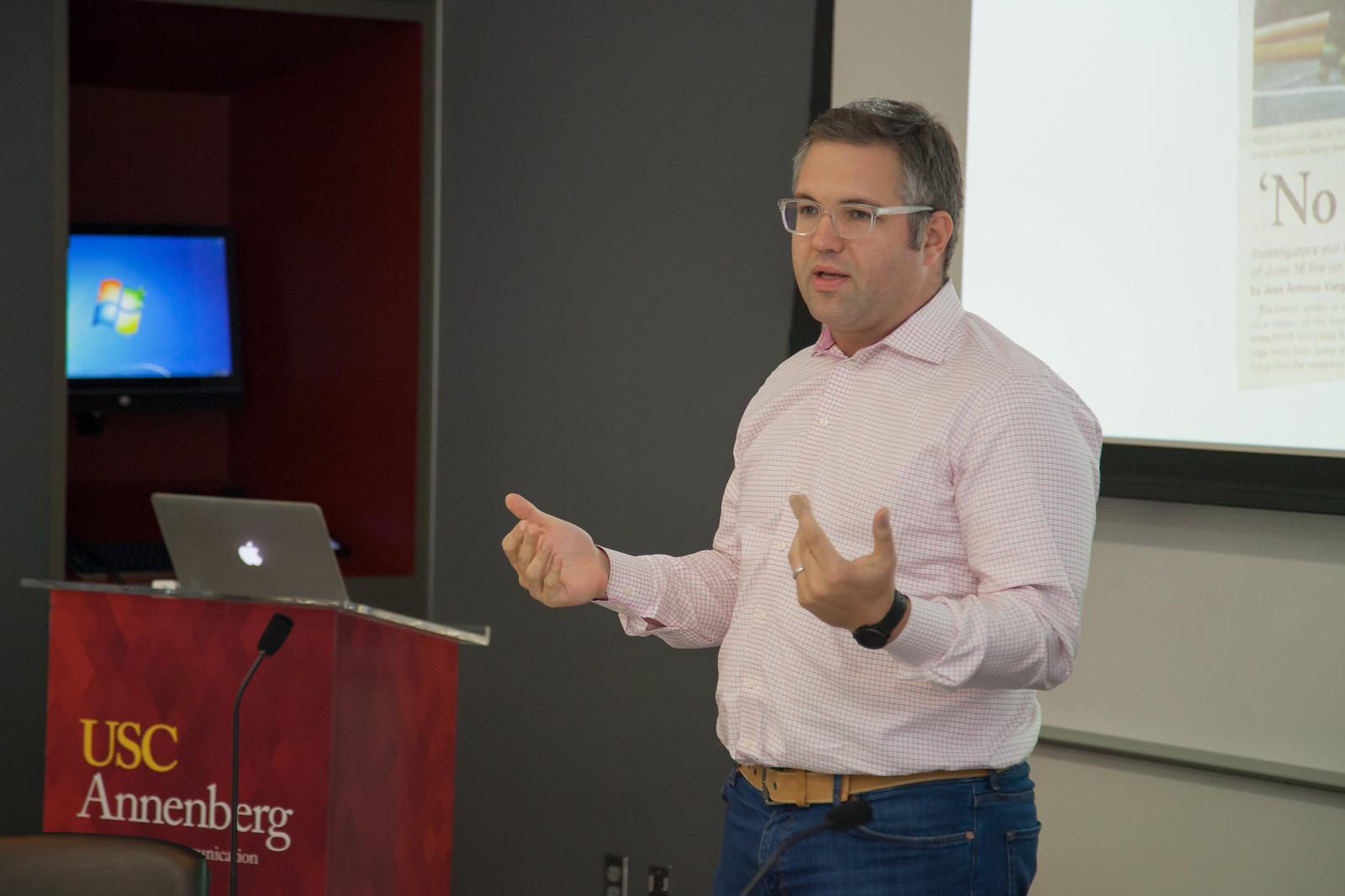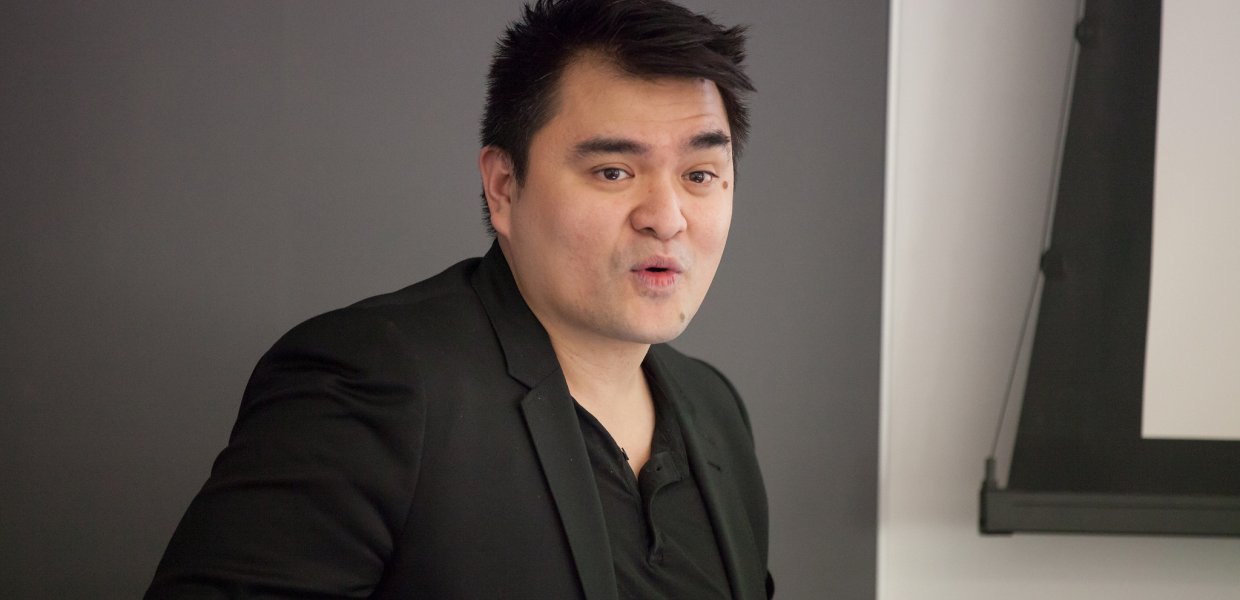When Jose Antonio Vargas was 17-years-old, he made a list of everything he wanted to accomplish in his journalism career: become a political reporter, be published in the New Yorker, win a Pulitzer Prize. By the time he was 30, he had checked off every accomplishment on that list, but a more fundamental item remained still out of reach: legally residing in the United States.
Having been sent to California from the Philippines to live with his grandparents as a child, it wasn’t until Vargas tried to obtain a driver’s license at 16 that he realized the green card his grandfather had given him was fake. He was an undocumented immigrant, a status he spent the next 14 years trying to hide, all while building a high-profile career at The Huffington Post, the San Francisco Chronicle, and The Washington Post, where he and his team won a Pulitzer prize for breaking news reporting.
In addition to the hard work needed to fuel a meteoric rise to the pinnacle of his profession, Vargas also endured the stress of simultaneously trying to stay under any number of legal and procedural radars. Eventually, this dual effort began to take a toll, and so, as Vargas told a crowd of USC Annenberg faculty and students on Tuesday, April 12, he decided to break his own story. After consulting with 28 immigration lawyers, of which only one encouraged him to stay in the United States, in 2011 Vargas wrote a 4,000-word essay for The New York Times Magazine about his experience in hopes of sparking a conversation about the U.S. immigration system.
“I said everything the lawyers said I shouldn’t say,” Vargas said. “Why? Because I am, first and foremost, a journalist.”
Though Vargas was finally able to be honest about his undocumented status, he knew there would be consequences. And there were: he was informed that he had committed a felony every time he had lied on an employment form, and in 2014 he was arrested by immigration authorities at an airport in Texas. Today, he is still undocumented and is waiting on President Obama to decide his fate, along with thousands of others.
“For me, the number one question I get asked is...“Why don’t you just make yourself legal’?” Vargas said. “I can’t tell you how many doors have been shut to me in the past five years because of this issue.”
Reaction from Vargas’ own colleagues and others in the media industry to the essay was mixed. Vargas said from the moment the essay was published, journalists, most of whom were white, told him he had taken a stance on immigration that undermined his ability to be an objective reporter.
“For me, coming out as undocumented, in the same way as coming out as gay, is not a political stance. This is just my reality,” Vargas said. “I didn’t ‘come out,’ I’m just letting people in.”
Vargas said he had first approached The Washington Post about publishing his story, but that the paper was skeptical of his experience and wanted to run a story about him, not by him.
“I can tell my own story, I can write my own narrative,” Vargas said. “More and more, in the journalism community, we need more journalists of color to be able to tell their own stories and frame their own narratives.”
Vargas has since founded the nonprofit organization Define American, written and produced the film “Documented,” and last year created the documentary “White People” for MTV. He spoke at the lunchtime discussion in Wallis Annenberg Hall about #JournalismSoWhite, the changing media industry, and his current crowd-funded media venture, #EmergingUS, which grew from a partnership with the Wallis Annenberg Chair in Journalism, Nicco Mele, at the Los Angeles Times.
“Jose is, simply put, exceptional,” Mele said. “We still don’t have good ways of talking about race and immigration in this country, and the burden of that is on America’s journalists.”
American views on race first became apparent to Vargas when he witnessed the O.J. Simpson trial as a teen and came to the realization that “white” and “black” weren’t distinctions used in the Philippines. Growing up in a Filipino household also meant Vargas learned English by watching movies and the news, but he didn’t consider journalism as a career until a teacher told him he “asked too many annoying questions” -- and introduced him to the concept of a byline.
“I thought if I can’t be here legally because I don’t have pieces of paper, what if I’m on the paper?” Vargas said. “I thought this was a way to exist.”
Still, having his name in print was a mixed blessing, and Vargas said he was constantly terrified that any mistake in his reporting would lead to his undocumented status being discovered. As such, Vargas said he was always on his toes and has only had to make five corrections in his whole journalism career. There were times, however, when Vargas considered what he termed “self-deporting” and starting over again in the Philippines, where he would be able to see his mother for the first time in more than 20 years.
Ultimately, though, Vargas felt he had a duty to stay and tell the story of undocumented immigrants, and through activism and institution building--such as the founding of #EmergingUS -- help change how that story is told.
“How do we reimagine these things, and how do we reimagine them outside of the traditional straight, white male perspective that for far too long has dominated American journalism?” Vargas asked. “If more women of all ethnic and racial backgrounds and more people of color were actually in charge of framing stories, we would be having a completely different conversation than what we’re having right now.”
Click on the image below for a gallery of images from Jose Antonio Vargas' visit:

